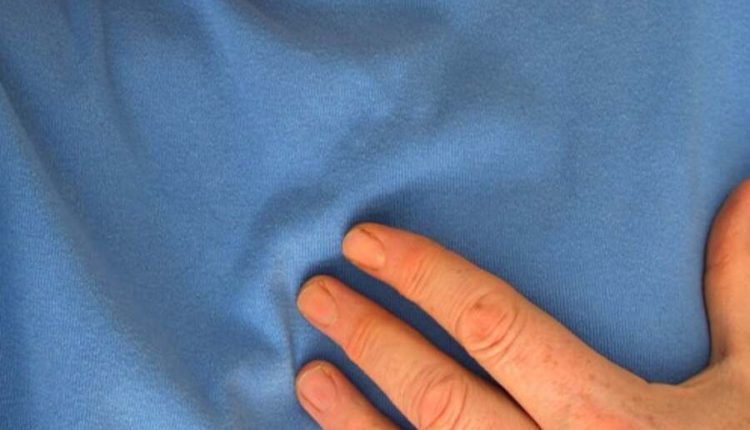Prevention of coronary heart disease and cardiovascular events like heart attacks can be achieved by changes in one’s way of life.
Reasons why people get heart disease
Factors such as these are direct causes of coronary heart disease and heart attacks.
Arteriosclerosis causes a narrowing of the arteries throughout the body, including the heart.
A high cholesterol blood count.
Caused by hypertension.
A lot of extra fat.
It’s diabetes.
Homocysteine, an amino acid, is overrepresented in the blood.
High levels of “bad” LDL cholesterol and low levels of “good” HDL cholesterol in the blood. Lipoproteins are complex molecules made up of both protein and lipids.
– Inflammation of the blood vessels.
Old age.
– A family history of high cholesterol or cardiovascular disease.
Men are somewhat more likely to have heart disease than women.
These elements are driving or exacerbating each other in complex ways. Arteriosclerosis, for instance, can lead to hypertension, and hypertension, in turn, can lead to further arteriosclerosis. Many of these issues can be traced back to or are made worse by the following aspects of one’s lifestyle:
An unhealthy diet is heavy in fat, cholesterol, and sugar.
-Overindulging in the wrong kinds of fats.
The diet has low levels of beneficial nutrients, such as fiber, vitamins, and minerals.
-Everyday life and professional pressures.
-Smoking.
Due to inactivity.
Accordingly, modifying one’s way of life will be the primary means of avoiding heart failure.
ADVICE ON A DIET IN GENERAL
Diets designed to reduce the risk of cardiovascular disease share many similarities with cancer prevention diets. Here are some guidelines for a healthy diet:
Industrially processed, chemically produced, or highly fried foods should be avoided or eaten in moderation.
Consume fish at least once every other day. Consume plenty of fish and shellfish.
Reduce your red meat consumption.
Consume at least five servings of produce daily. The ideal size for each serving is an apple or a carrot. They are best eaten fresh or boiled very slowly to preserve their nutritional value.
Cornbread, corn cereal, peas, beans, and potatoes should all be eaten whole.
Reduce your fat intake to a manageable level.
Cholesterol-rich foods, such as eggs, spawn, and liver, should be consumed in moderation.
– The majority of the fat in your diet should be monounsaturated. You also require polyunsaturated fats such as omega-3 and omega-6, while an excess of omega-6 is undesirable. Saturated fat is unhealthy and should be consumed in moderation.
Olive, olive oil, canola oil, nuts, nut oil, sunflower, sunflower oil, linseed oil (flax oil), fish, and fish oil are just a few of the fat sources that should be combined to produce the proper fat balance.
Reduce your intake of soy oil and corn oil to a manageable level. Using only these oils will result in an excess of omega-6 polyunsaturated fat.
Butter, coconut, and palm oil are all great examples of fats that should be used in moderation. Saturated fat intake becomes dangerously high when certain foods are consumed in large quantities.
Chemically modified fat, often known as trans fat, should be avoided at all costs. Margarine, cookies, snacks, fast food, and other ready-made foods commonly contain this type of fat.
Reduce your intake of sugar, white flour, and processed cereals to only a tiny quantity.
Moderate your intake of sleep aids and stimulants like wine and coffee.
Reduce the salt content of your food to a manageable level. However, more salt is required in hot weather and during strenuous physical activity.
PREVENTIVE NUTRITIONAL SUPPLEMENTS FOR CARDIOVASCULAR DISEASE
There is some evidence that taking natural material supplements can help prevent heart disease and alleviate its symptoms. A few examples of such aids are:
– Omega-3 fatty acids, such as eicosapentaenoic acid (EPA), docosahexaenoic acid (DHA), and alpha-linolenic acid (ALA), are found in fish and other marine sources. These chemicals can be taken as dietary supplements at a daily dose of 1 gram each. In more significant amounts, these medicines can weaken the immune system and increase the risk of bleeding. Thus, they should only be taken under medical care.
While it was previously believed that vitamin C supplements could aid in preventing cardiovascular disease, more recent research has cast doubt on this.
Researchers have found that B vitamins (Pyridoxine, Folic Acid/Folate, Vitamin B12, and Riboflavin) reduce blood levels of homocysteine and help protect against cardiovascular disease.
DISPOSE OF EXCESS WEIGHT
This article’s suggested lifestyle changes can also aid in weight loss. If these suggestions are unsuccessful, a more targeted weight loss program may be necessary. A modest fat-content philosophy regimen is the best option for you. Some diet plans advocate eating fewer carbohydrates and more fat; these plans may not be optimal for lowering cardiovascular disease risk.
EXERCISE
You must get at least a half hour of physical activity every other day. The best way to lower the risk of a heart attack is to engage in regular condition training, such as brisk walking, running, cycling, or swimming. Strength training is also helpful, mainly if you focus on your legs.
DON’T CIGARETTE
If you are a smoker, you can reduce your risk of heart disease by quitting or drastically reducing your smoking.
DIPLOMA CONTROL
Controlling type 1 diabetes with insulin and dietary changes can reduce the risk of cardiovascular disease.
Diabetes type 2 affects a large percentage of the population over 50 and a rising fraction of the younger demographic. Many people have this condition without realizing it because the symptoms are subtle, yet the risk of developing heart problems is high. The same lifestyle changes shown above can help prevent this condition. Carbohydrate intake must be restricted more strictly if you already have the disease. Medication is also sometimes necessary. Find out if you have this ailment if you are above the age of 50 or if you are under the age of 50 and not feeling well.
TAKING AN ACETATE
People at high risk for heart disease can reduce their risk by taking low dosages of acetylsalicylic acid or aspirin. However, due to the increased risk of bleeding, this medicine always requires close medical monitoring. People who don’t have a high risk of cardiovascular disease shouldn’t use aspirin because the risks outweigh the benefits.
Knut Holt is an online consultant and marketer specializing in selling health-related products.
Visit =>http://www.abicana.com/shop2.htm if you’re looking for natural remedies for a wide range of ailments, including but not limited to heart disease, obesity, acne, hypothyroidism, exhaustion, depression, anxiety, hemorrhoids, joint pain, allergies, rheumatism, and respiratory disorders.
Visit =>http://www.abicana.com/shop1.htm for heart disease and other health problem prevention supplements.
Feel free to republish with attribution to the author.
Read also: Sharp heel pain – What I Did To Help Reclaim My Life


